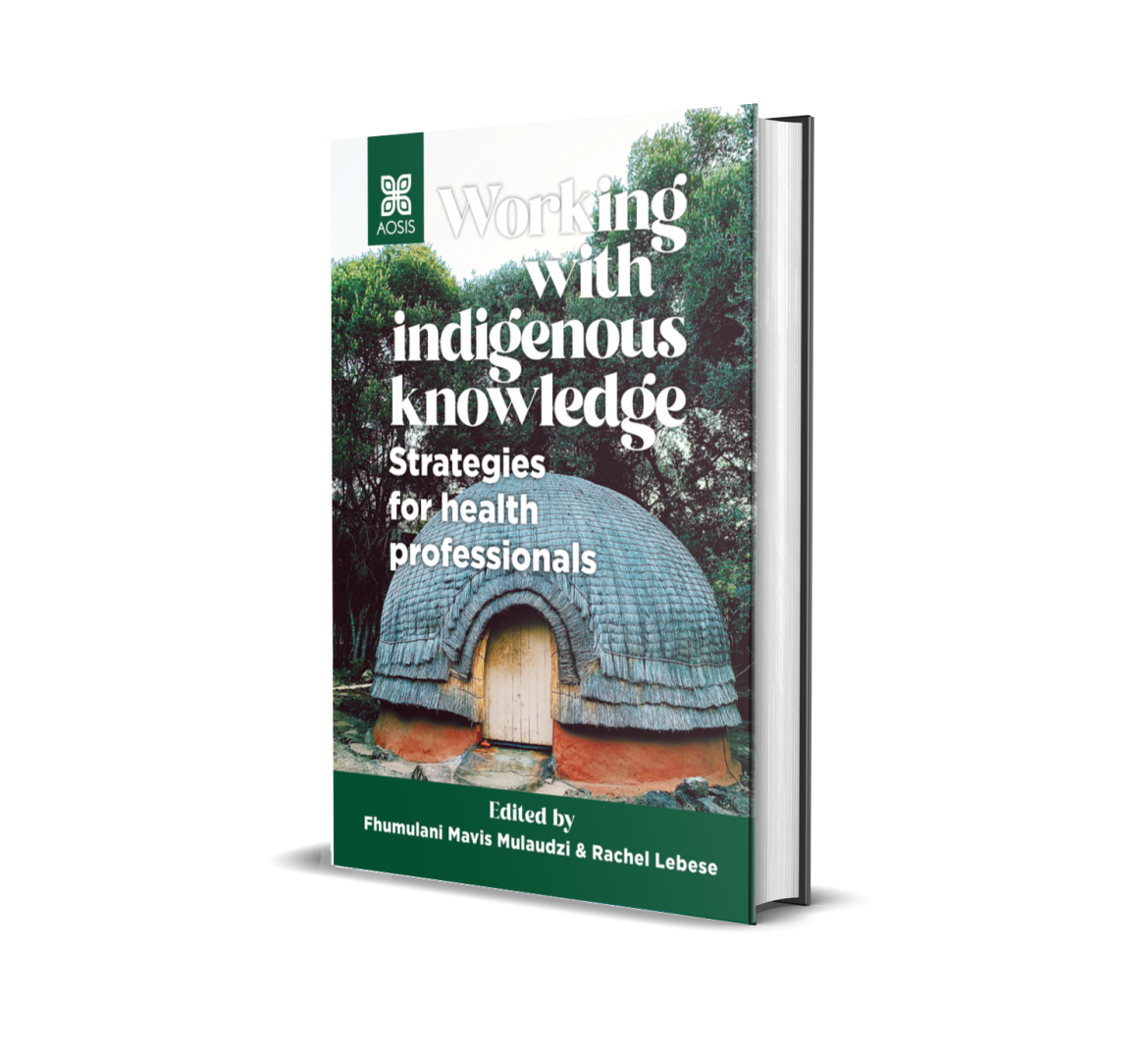Working with indigenous knowledge: Strategies for health professionals is published by AOSIS Scholarly Books.
The aim of the book is to assist both local and international scholars in articulating the scholarly discourse on indigenous health attitudes, practices, and experiences. The indigenous lens that was used to generate and disseminate indigenous knowledge in this book will strengthen indigenous scholarship, thus making it accessible to a wider audience. In addition, the information shared in this book will add value for scholars and assist them with the indigenous knowledge needed to address sustainable development goals. This book is timeous and topical as the discourse on the decolonisation of the curriculum is widely debated in the higher education space. The discourse on the scholarship of indigenous knowledge, as the tacit local knowledge that stems from cultural practices within communities, has not been well articulated in the current health science education milieu. Indigenous knowledge has remained overlooked and undermined for a very long time and the information remains untapped in local communities. The scholars who conducted the research on which this book is based unearthed a wealth of knowledge which was tacit in nature and translated it into implicit knowledge that can be documented and shared with other scholars globally. This knowledge will assist health care scholars in benefiting from knowledge, practices and cultural beliefs that will assist them in health care planning, teaching, evidence-based practice and further research.
Copyright (c) 2022 Fhumulani M. Mulaudzi, Rachel T. Lebese (Volume editor)
This book was fascinating to read. Some critical insights into the practice of all health care practitioners were brought to the fore. Additionally, this has demonstrated that not everything that is Eurocentric, in terms of health care, is a good thing. In some instances, indigenous practices are effective and beneficial to clients seeking health care services and should therefore be encouraged. Indigenous knowledge must be included in the higher education curriculum to enable health care providers to render relevant and culturally-congruent health care services.
Prof. Agnes Makhene, Department of Nursing, Faculty of Health Sciences, University of Johannesburg, Johannesburg, South Africa

